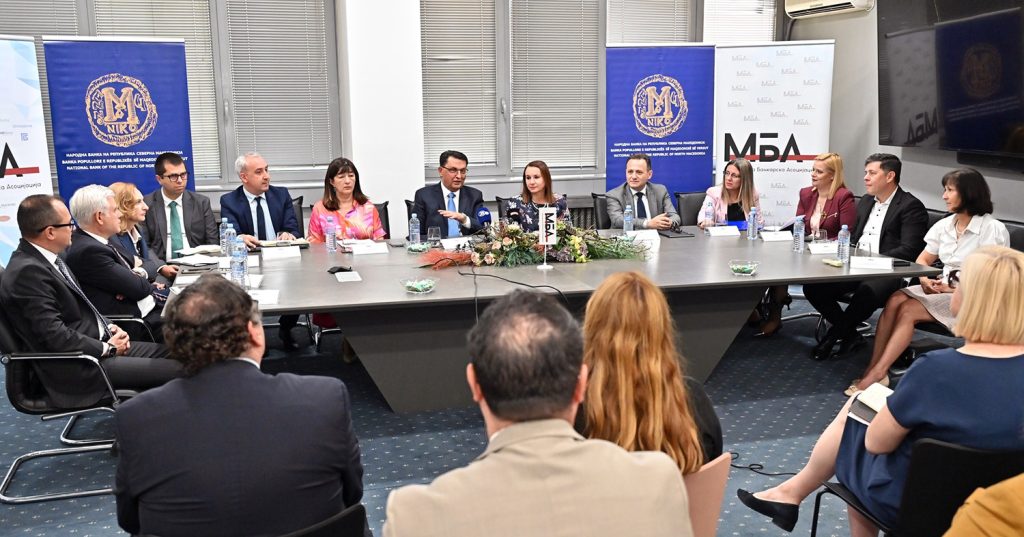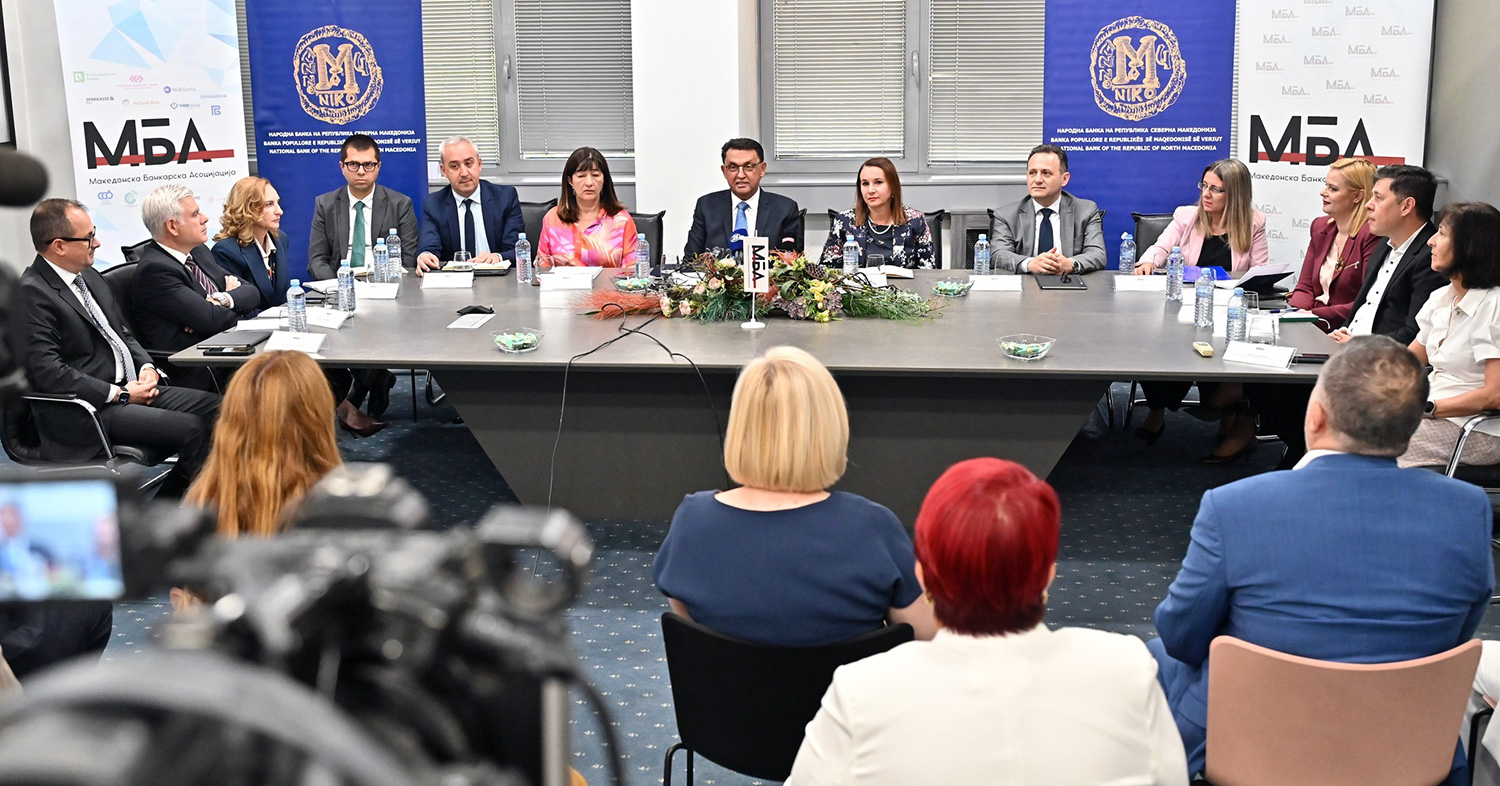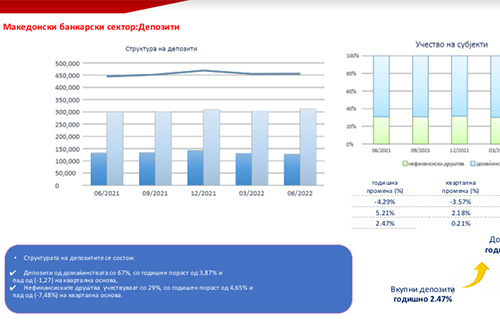Working Meeting Between the Governor of the National Bank, PhD. Trajko Slaveski, and Representatives from MBA Member Banks
A working meeting was held at the premises of the Macedonian Banking Association between the Governor of the National Bank, PhD. Trajko Slaveski, and representatives from the Association’s member banks. At the meeting, the Governor presented the views and proposals of the National bank aimed at reducing the costs borne by citizens and companies when using payment services.
In his address, the Governor emphasized that the goal of the initiative is to set fees at a level that is sustainable for banks, but also fair and acceptable for users. In this regard, the National Bank is ready to take the first step by reducing the fees that banks pay for using the services of MIPS (Macedonian Interbank Payment System).
At the same time, banks are expected to revise the fees for executing payments for citizens and companies in the shortest possible time and set them at reasonable levels, such as: reducing account maintenance fees for legal entities, with emphasis on easing the burden on small and medium-sized enterprises; abolishing fees for the use of electronic and mobile banking; abolishing fees for in-bank payment orders; reducing interbank payment fees in denars through the KIBS and MIPS payment systems; simplifying and lowering the cost of ATM cash withdrawals from other banks; and reducing merchant service charges for card acceptance.
During the meeting, the President of the Macedonian Banking Association, PhD. Maja Stevkova-Shterieva, expressed gratitude to Governor PhD. Trajko Slaveski for his address and shared the Association’s views on the proposals for reducing payment service fees.
In her address, she emphasized that banking service prices are determined individually by each bank through its management bodies, and that since its inception, the Macedonian Banking Association has never discussed product or service pricing as a joint topic. “In the future, we will continue to discuss possible directions for action, but price decisions remain at the discretion of each individual bank,” she stated.

The President also pointed out the importance of understanding the context of data published in the public domain, especially regarding the share of fees in bank revenues. She added that the banking sector is among the most transparent in the country, obliged to publish accurate and detailed information in accordance with regulations, which is not the case for many other sectors of the economy. “When making comparisons, we must keep in mind that the banking sector operates with a high level of transparency, while many other sectors do not – data is often incomplete or inaccurate,” stressed Stevkova-Shterieva.
Regarding the potential reduction of certain fees, she noted that this is a complex process requiring careful cost analysis, especially considering the significant expenses banks incur, both in terms of IT and for services related to international providers around card business. “That’s why we advocate for developing as many services as possible using domestic resources in Macedonia, which would contribute to cost reduction and more favorable conditions for clients,” she added.
The announced reduction in the fee for using the MIPS system was also pointed out as one of the potentials for reducing costs, which could translate into lower costs for clients in the future. The Macedonian Banking Association remains open to cooperation and will act toward improving payment services, including through reviewing the proposals and initiatives presented by the Governor.






